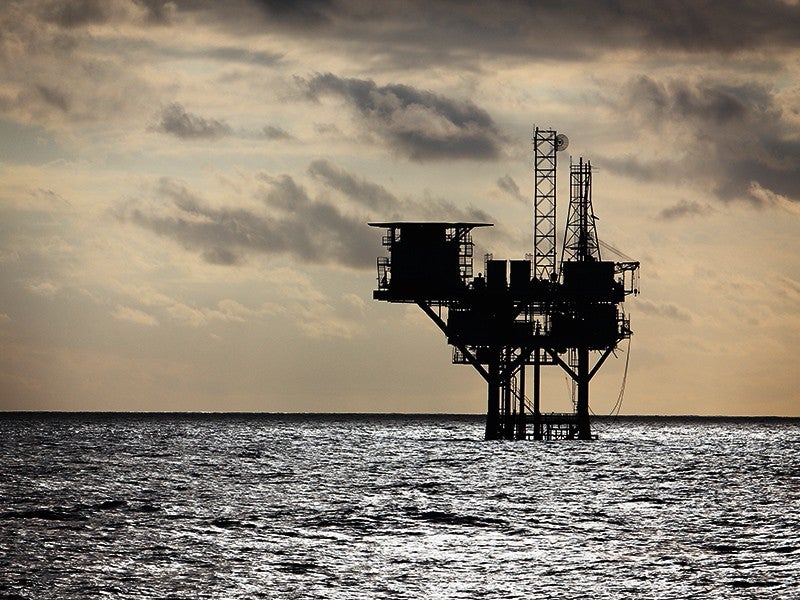Last Chance to Make Your Voice Heard on Offshore Drilling
There’s just one week left to respond to a plan for new oil drilling along U.S. coastlines.

This page was published 7 years ago. Find the latest on Earthjustice’s work.
Time is running out for the public to tell the Obama administration to protect our oceans from future offshore drilling. People celebrated World Oceans Day with film screenings, beach cleanups, festivals and special events at aquariums. This global celebration of the briny deep also happens to arrive just as Earthjustice and our partner organizations are entering the final push against federal plans for new offshore oil and gas leasing.
Next week, on June 16, comments are due on a five-year plan to open vast swaths of the Arctic Ocean and the Gulf of Mexico to new offshore oil exploration. On the heels of the historic signing of the Paris climate agreement in April, this proposal for new energy leases in coastal areas threatens to take us backward on climate change.
In the months since federal officials unveiled the plan, impacted communities and their allies have banded together to submit comments to the federal Bureau of Ocean Energy Management (BOEM), to make their voices heard at public hearings and to organize marches and rallies. Here’s what it looked like when people concerned about the consequences of offshore drilling came together in the streets of Washington, D.C., just a few weeks ago. You can be a part of this movement, too, by sending a message of your own to President Obama.
Many people are especially worried about the impact offshore drilling could have on the Arctic, where warming is already occurring at twice the rate of the rest of the world. Not only would burning extracted oil contribute climate change, but allowing new drilling would also increase the chances of an oil spill like the one that created a 13-mile slick in the Gulf of Mexico just last month.
An oil slick in frigid Arctic waters would be a nightmare scenario, presenting a host of thorny challenges for cleanup crews due to limited infrastructure, sea ice and the likelihood that crews would have to operate at a time of year when night lasts for 24 hours. Even BOEM director Abigail Hopper acknowledged this possibility at a May 19 hearing on the offshore leasing proposal, when asked about the approval of wind farms versus oil rigs in the Arctic. “One of the important differences is that as you look at development, you have to look at the risk of an oil spill,” she said. “There’s no system we have in place that can guarantee there would be no oil spill.”
Among the attendees at that hearing were Alaska Natives from the Arctic village of Point Lay. There are “many people in every village that aren’t being heard because they’re out there living their way of life,” Lloyd Pikok, vice president of the Point Lay Tribal Council, told Alaska Dispatch News after the hearing. “We aren’t a minority; we just aren’t being heard.”
Athan Manuel, director of the Sierra Club’s lands protection program, told federal officials during the hearing that the campaign is linked to broader efforts to combat climate change. “The evidence is clear: The national climate assessment has said unequivocally [that] the climate is warming, and over the last half century this change has been driven predominately by the burning of fossil fuels like oil and gas,” he explained. “The president has acknowledged that if we’re serious about fighting climate change, two-thirds of the fossil fuels need to stay underground where they are now—the coal, the oil and the gas. We agree with the scientific community that we need to keep this oil in the ground.”
Local communities and environmental organizations aren’t the only ones to voice opposition to the five-year leasing proposal. In a recent letter, Senator Jeff Merkley (D-Oregon) and 10 other senators wrote to U.S. Secretary of the Interior Sally Jewell to thank her for removing the Atlantic Ocean from the proposed leasing program. But they also implored her to stop offshore drilling in the Arctic.
The senators asked Secretary Jewell to exclude leases from “vulnerable areas, such as the Chukchi and Beaufort Seas.” The move would be in keeping with the commitment made under the Paris climate agreement, they noted. Taking “new fossil fuel leases off the table,” they wrote, “will send another powerful international signal that the United States is indeed dedicated to investing in the transition to a low-carbon economy.”
Diana Tarrazo contributed to this post.
Based in Portland, OR, Rebecca is Earthjustice's Public Affairs and Communications Officer for lands, wildlife, and oceans.
Opened in 1978, our Alaska regional office works to safeguard public lands, waters, and wildlife from destructive oil and gas drilling, mining, and logging, and to protect the region's marine and coastal ecosystems.
